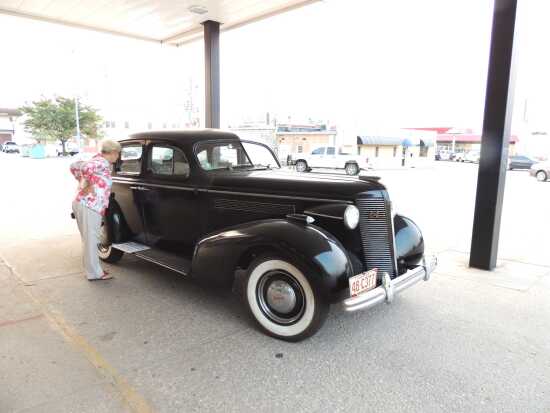History official: Take notes for future interview

McCOOK, Neb. — 2020 is an historic year, so be prepared for future fourth graders wanting to interview you about it, said the keynote speaker at the George W. Norris Prayer Breakfast this morning.
As the director of History Nebraska (formerly the State Historical Society), Trevor Jones is a fan of all things historical and speculated on how Sen. George Norris would respond to the COVID-19 pandemic and other issues impacting Nebraskans today.
The impacts of the pandemic have been profound and Norris also faced several cataclysmic events in his lifetime, Jones said, including the financial melt-down from the Panic of 1893, World War I and the 1918-19 Spanish Flu that killed 650,000 Americans.

Not a big fan of opinion, Norris probably would have not commented unless the person he was talking to knew all the facts, Jones said, as “he hated people who speculated about stuff who didn’t have expertise on the subject.” Norris may have acted the same way in he did in the 1930s, when a reporter asked him how President Abraham Lincoln would have responded to the Great Depression. “He would be just like me,” Norris allegedly said, “he would’t know what the hell to do.”
Norris, who many considered one of the greatest U.S. senators, served in the U.S. Senate for 30 years and was known for following principals rather than party. He was the spearhead behind rural electrification and worked closely with Franklin D. Roosevelt to get electricity to rural citizens. In 1930, electricity was available to 90% of urban dwellers but to only 10% of their rural counterparts.
To Norris, that was not only unfair but a threat to American democracy, Jones said, as he saw electricity as a driver of production and economies.
Today, Norris may have felt the same way about access to broadband high speed internet access, Jones said. The disparity between urban and rural communities for high speed internet is much like what it was for electricity, he said, with 4% of urban areas lacking access, compared to 31% lacking access in rural areas. Like electricity, high speed internet access today is not a luxury but a basic necessity, Jones said, for education, healthcare, businesses and as a economic engine. “He would have found it unjust and looked for a solution,” Jones said, adding that Norris also felt that government, not businesses, should provide a solution to basic necessities.
But Norris wasn’t a genius, Jones pointed out, or a great speaker, writer or fundraiser. And for much of his career, Norris remained very unpopular among his peers, such as when he voted against entering WWI, Jones noted.
Still, his “super power” was a commitment to a principal, Jones said, a dogged persistence “and a belief in something bigger than yourself.” And he wasn’t deterred by the scope of the problem or how long it took to change it, with the Rural Electrification Act taking Norris 12 years to craft.
He exemplified the adage that the world is changed by those who show up — and keep showing up, Jones said.
The Norris Prayer Breakfast, an annual tradition of Heritage Days, is sponsored by the Norris Institute. Board members include Cloyd Clark, president, Andy Long, vice president, Mark Graff, treasurer, Maggie Repass, secretary, and board members, Warren Jones, Bruce Hoffman, Leon Kuehlen, Dennis Barry, Bruce McDowell, Bryant Brooks and Dawna Bates.
